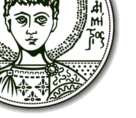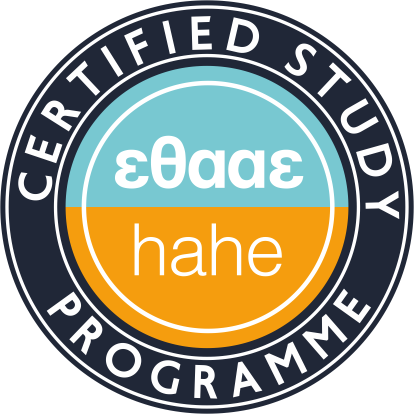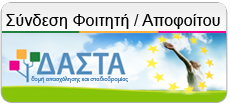Papadopoulou Thalia
Thalia Papadopoulou has received first-class degrees in Classics from the Aristotle University of Thessaloniki (BA 1993) and the University of Cambridge (MPhil 1995, PhD 2000). She held scholarships from the Greek State Scholarships Foundation throughout her undergraduate and doctoral studies. She has taught classics at the Universities of Cambridge (teaching associate, 1996-2000), Oxford (lecturer, Corpus Christi College, 2000-2001), Crete (temporary lecturer, 2001-2002) and Ioannina (lecturer, 2002-2009). She was Postdoctoral Junior Research Fellow in Classics at Wolfson College, University of Oxford (2000-2001). Since 2010 she is Assistant Professor and since 2015 Associate Professor of Greek at the Aristotle University, Faculty of Classics.
Her research interests include Greek tragedy, Roman tragedy, epic, historiography, literary criticism in antiquity and the reception of Greek literature. She is the author of the books: (1) Heracles and Euripidean Tragedy (Cambridge University Press 2005) (2) Euripides: Phoenician Women (Duckworth 2008) (3) Aeschylus: Suppliants (Duckworth 2011).
| Code No | Title | Credits | Classroom |
|---|---|---|---|
| GREEK 144 | GREEK SEMINAR II (prose) | 6 ECTS | |
| LATIN 163 | LATIN SEMINAR I (poetry) | 6 ECTS | |
| LATIN 163 | LATIN SEMINAR I (poetry) | 6 ECTS | |
| TEACH CLAS 010 | TEACHING METHODS OF ANCIENT LANGUAGES AND LITERATURES | 6 ECTS |
Thalia Papadopoulou
Curriculum Vitae
STUDIES
1989-1993: BA in Philology (major: Classics), Aristotle University of Thessaloniki.
1994-1995: MPhil in Classics, University of Cambridge, Faculty of Classics, New
Hall (Murray Edwards College).
1996-2000: PhD in Classics, University of Cambridge, Faculty of Classics, Newnham
College.
PHD DISSERTATION
Studies in Euripides’ Heracles. Supervisor: P.E. Easterling. Examiners: James Diggle
(Cambridge) and Christopher Collard (Oxford).
ACADEMIC CAREER
1996-2000: Teaching Associate, University of Cambridge, Faculty of Classics.
2000-2001: Postdoctoral Junior Research Fellowship, University of Oxford, Wolfson
College.
2000-2001: Lecturer, University of Oxford, Corpus Christi College.
2001-2002: Temporary Lecturer, University of Crete, Faculty of Classics.
2002-2009: Lecturer, University of Ioannina, Faculty of Classics.
10-6-2008: Election to the post of Assistant Professor, University of Crete, Faculty of
Classics. The appointment (4-9-2009) was not accepted.
23-1-2009: Election to the post of Assistant Professor, Aristotle University of
Thessaloniki, Faculty of Classics (appointment 7-6-2010).
6-10-2014: Election to the post of Associate Professor, Aristotle University of Thessaloniki, Faculty of Classics (appointment 24-3-2015).
SCHOLARSHIPS
1990-1993: Scholarship for excellence in each undergraduate year of studies by the
Greek State Scholarships Foundation.
1996-1999: Scholarship-by-Examination in Classics by the Greek State Scholarships
Foundation for doctoral studies at Cambridge.
1996-1999: Scholarship by the A.G. Leventis Foundation for doctoral studies at
Cambridge.
1996-1999: Scholarship by the University of Nottingham, Faculty of Classics, for
doctoral studies at Nottingham (not accepted).
1997-1998: Laurence Scholarship, University of Cambridge, Faculty of Classics.
1999-2000: Jebb Scholarship, University of Cambridge, Faculty of Classics.
AUTHORED BOOKS
1. Heracles and Euripidean Tragedy. Cambridge: Cambridge University Press 2005.
2. Euripides: Phoenician Women. London: Duckworth 2008.
3. Aeschylus: Suppliants. London: Duckworth 2011.
EDITED BOOKS (in translation)
1. P.T. Stevens (1971), Euripides: Andromache. Oxford, transl. K. Kavounidou,
Athens: Kardamitsa 2010.
CHAPTERS IN BOOKS
1. ‘Subjectivity and Community in Greek Tragedy: The Example of Euripides’
Heracles’, in S. Patsalidis/E. Sakellaridou (edd.), (Dis)placing Classical Greek
Theatre, 297-307. Thessaloniki 1999.
2. ‘Representations of Athena in Greek Tragedy’, in S. Deacy/A. Villing (edd.),
Athena in the Classical World, 293-310. Leiden 2001.
3. ‘Revenge in Euripides’ Heracles’, in F. Budelmann/P. Michelakis (edd.), Homer,
Tragedy and Beyond: Essays in Honour of Professor P.E. Easterling, 113-128.
London 2001.
4. ‘Ανθρωπολογία, Κοινωνιολογία και Λογοτεχνική Παράδοση. Το Γυναικείο
Στοιχείο στην Αρχαία Ελληνική Τραγωδία’ (‘Anthropology, Sociology and
Literary Tradition: The Female Element in Greek Tragedy’) in Α.
Μαρκαντωνάτος/Χ. Τσαγγάλης (edd.), Σημεία. Σύγχρονες Προσεγγίσεις στην
Αρχαία Ελληνική Τραγωδία, 149-177. Athens 2008.
5. ‘Altruism, Sovereignty and the degeneration of Athenian
Imperialism in Greek Tragedy and Thucydides’, in A. Markantonatos/B.
Zimmermann (edd.), Crisis on Stage: Tragedy and Comedy in Late Fifth-Century
Athens, 377-404. Berlin 2011.
6. 'Euripidean frenzy goes to Rome: The Case of Roman Comedy and Novel',
in P. Kyriakou/A. Rengakos (edd.), Wisdom and Folly in Euripides,
335-346. Berlin 2016.
ARTICLES IN REFEREED JOURNALS
1. ‘The Presentation of the Inner Self: Euripides’ Medea 1021-55 and Apollonius
Rhodius’ Argonautica 3, 772-801’, Mnemosyne 50 (1997) 641-664.
2. ‘Tradition and Invention in the Greek Tragic Scholia: Some Examples of
Terminology’, SIFC 16 (1998) 202-232.
3. ‘Literary Theory and Terminology in the Greek Tragic Scholia: The Case of
Plasma’, BICS 43 (1999) 203-210.
4. ‘Cassandra’s Radiant Vigour and the Ironic Optimism of Euripides’ Troades’,
Mnemosyne 53 (2000) 513-527.
5. ‘The Prophetic Figure in Euripides’ Phoenissae and Bacchae’, Hermes
129(2001) 21-31.
6. ‘Herakles and Hercules: The Hero’s Ambivalence in Euripides and Seneca’,
Mnemosyne 57 (2004) 257-283.
7. ‘Artemis and Constructs of Meaning in Euripides’ Iphigenia in Tauris’, Ariadne
11 (2005) 107-128.
8. ‘The Argive Decision in Favour of the Danaids in Aeschylus’ Suppliants’, Dioniso n.s. 5
(2015), 5-30.
ENCYCLOPEDIA ENTRIES
1. 'Euripides: Alcestis', Literary Encyclopedia, ed. J. Burgess (September 2012).
2. 'Euripides: Supplices', Literary Encyclopedia, ed. J. Burgess (September 2012).
3. ‘Euripides: Phoenician Women’, The Blackwell Encyclopedia of Greek Tragedy, ed. H. Roisman. Oxford 2013.
4. ‘Authorial Self-consciousness’, The Blackwell Encyclopedia of Greek Tragedy, ed. H. Roisman. Oxford 2013.
GENERAL PUBLICATIONS
1.‘Η αγάπη και ο θάνατος στην Άλκηστη του Ευριπίδη’, (‘Love and Death in
Euripides’ Alcestis’), 35-39, in the program of the performances of Euripides’
Alcestis by the Municipal Theatre of Ioannina, summer 2003.
BOOKS REVIEWS
1. W. B. Tyrrell/L. J. Bennett (1998), Recapturing Sophocles’ Antigone. New
York/Oxford, JHS 120 (2000) 154-155.
2. A. P. Burnett (1998), Revenge in Attic and Later Tragedy. Berkeley, JHS 121
(2001) 193.
3. B. L. Goward (1995), Telling Tragedy: Narrative Technique in Aeschylus,
Sophocles and Euripides. London, JHS 122 (2002) 167-168.
4. R. Scodel (1999), Credible Impossibilities: Conventions and Strategies of
Verisimilitude in Homer and Greek Tragedy. Stuttgart/Leipzig, JHS 122
(2002) 166-167.
5. E. S. Belfiore (2000), Murder among Friends: Violation of philia in Greek
Tragedy. Oxford, JHS 123 (2003) 203-204.
6. D. J. Mastronarde (2002) (ed.), Euripides: Medea. Cambridge Greek and
Latin Classics. Cambridge, ElAnt 8.2 (2004) 1-4.
7. E. Stafford (2012), Herakles. London: Routledge, JHS 133 (2013), 219-220.
CONFERENCE PAPERS AND PRESENTATIONS
1. ‘Assessment of the Euripidean Art in the Euripidean Scholia’, Faculty of
Classics, Cambridge, May 1997.
2. ‘Subjectivity and Community in Greek Tragedy: The Example of
Euripides’ Heracles’, International Conference ‘Millennium Responses:
(Dis)placing Ancient Greek Theatre’, Aristotle University of Thessaloniki,
September 1997.
3. ‘Subjectivity and Community in Greek Tragedy’ (extended version of
previous paper), Faculty of Classics, Cambridge, October 1997.
4. ‘ΗΡΑΚΛΕΗΣ ΠΤΟΛΙΠΟΡΘΟΣ in the (Hesiodic) Catalogue of Women’,
Faculty of Classics, Cambridge, February 1998.
5. ‘Introducing a Goddess: The Function of Athena in Euripides’ Heracles’,
International Conference on the goddess Athena, Oxford, April 1998.
6. ‘Literary Theory and Terminology in the Tragic Scholia: The Case of
Plasma’, Annual Conference of the Classical Association of Great Britain,
April 1998.
7. ‘Subjectivity and the Political Character of Greek Tragedy’, invited speaker,
Faculty of Literature and Drama, University of Krakow, Poland, May 1998.
8. ‘Interdisciplinary Approaches to Greek Tragedy: Ritual and Euripides’
Heracles’, 13th World Theatre Congress, Canterbury, July 1998.
9. ‘Exploring Limits in Euripides’ Heracles and in Seneca’s Hercules Furens’,
8th International Conference of the British Comparative Literature
Association, July 1998.
10. ‘The Presentation of Heracles in Euripides’ Heracles and in Seneca’s Hercules
Furens’, International Conference on ‘Herakles-Hercules’, Cardiff, September
1998.
11. ‘Artemis in Euripides’ Iphigenia in Tauris’, Faculty of Classics, Cambridge,
February 1999.
12. ‘Ancient Critics’ Responses to Tradition and Variation in Greek Tragedy’,
Faculty of Classics, Cambridge, March 1999.
13. ‘Notes on Revenge in Euripides’ Heracles’, Conference in celebretation of
Professor P.E. Easterling’s 65th Birthday, London, March 1999.
14. ‘Aspects of the Tragic Heracles’, Faculty of Classics, Cambridge, June 1999.
15. ‘Gender Perspectives in Greek Tragedy’, Faculty of Classics, University of
York, Toronto, February 2006.
16. ‘Altruism, Sovereignty and the degeneration of Athenian Imperialism in
Greek Tragedy and Thucydides’, 3rd Trends in Classics International
Conference ‘Crisis on Stage: Tragedy and Comedy in Late Fifth- Century
Athens', Faculty of Classics, Aristotle University of Thessaloniki, December
2009.
17. 'The Odyssey of the Tragic: A Reading of the Reception of Aeschylus'. Keynote lecture at the ceremony in honour of the Greek pupils who excelled at the 9th European Competition in Classics, Cultural Centre, Katerini, November 2010.
18. 'Onomata Kala: The politics of Greek Supplication Drama in Context', Department of Classics, New York University (NYU), New York, September 2011.
19. 'Female Voices in Greek Tragedy', Department of Classics, New York University (NYU), New York, September 2011.
20. 'Aspects of poetic inspiration and art from antiquity to modern times'. Keynote lecture at a poetic gala, organized by the Pieria Association of Writers, Cultural Centre, Katerini, January 2013.
RESEARCH INTERESTS
Greek Tragedy
Roman Tragedy
Epic
Historiography
Ancient Literary Criticism
Reception of Greek Literature in subsequent eras


